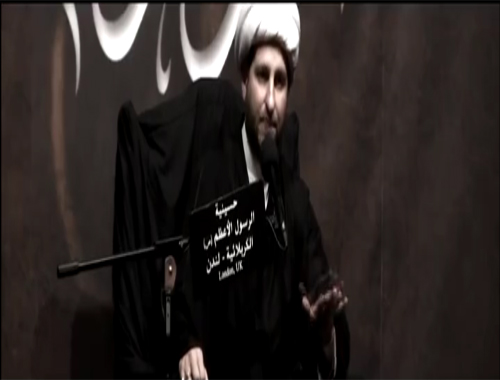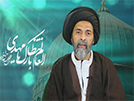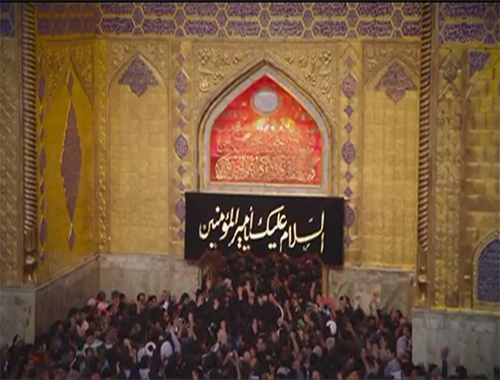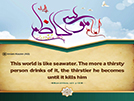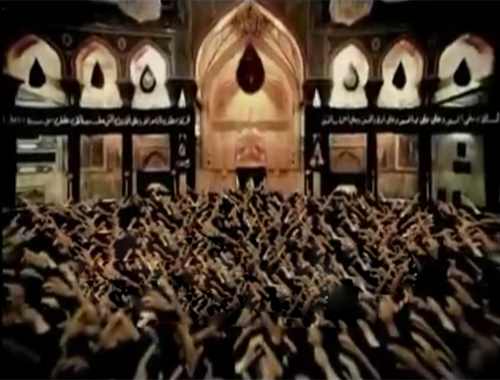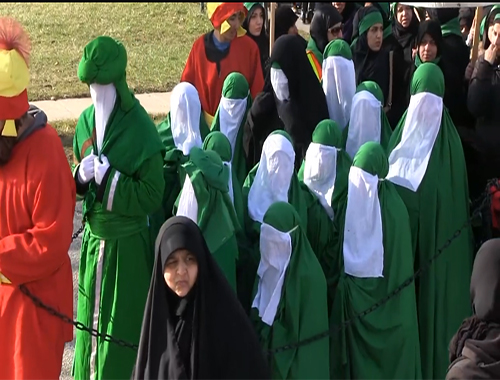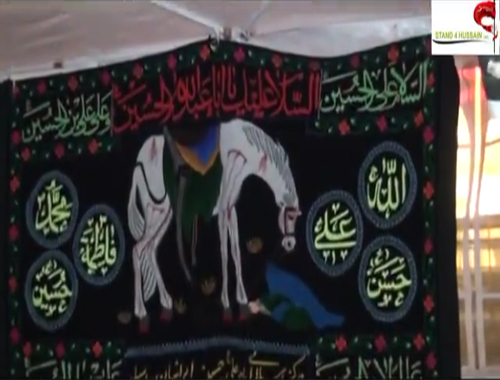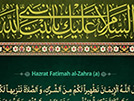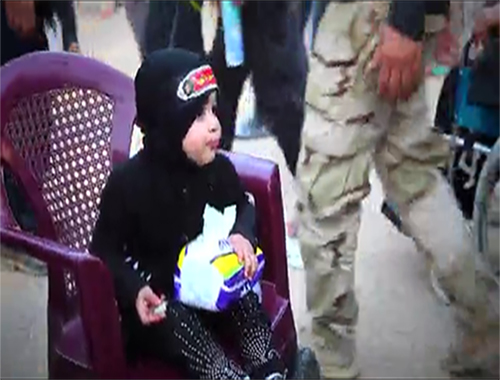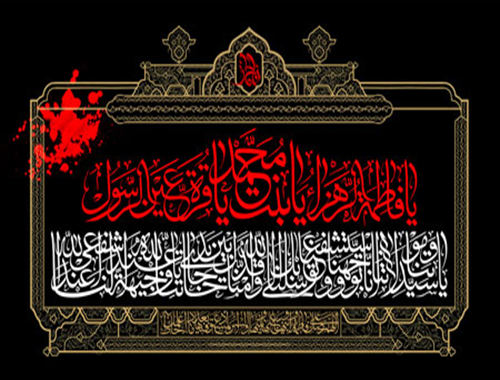6. One should remain between Hope and fear till the end of one's life
- Details
- Hits: 2013
6. One should remain between Hope and fear till the end of one’s life
It is mentioned in Safinatul Behar (Vol. 1, page 127) that the Holy Prophet (S) besieged the fort of Banu Qurayza. Banu Qurayza was a Jewish tribe who lived near Madinah and they were always trying to harm the Holy Prophet (S) and the Muslims. At last the Messenger of Allah (S) decided that there was no solution to this problem except to attack and destroy them. During the siege Banu Qurayza requested that Abu Lubaba be allowed to meet them so that they can seek his counsel. Abu Lubaba was acquainted with the Jews before this. Abu Lubaba was commanded by the Holy Prophet (S) to go to Banu Qurayza. When he went to them, they asked him if it was advisable for them to obey the orders of the Messenger of Allah (S).
He told them to accept the orders of the Messenger (S) without any delay because he had arrived to destroy them. Saying this, Abu Lubaba made a gesture towards his neck. However, immediately after this he began to regret the act and thought that he had committed Khayanat with the Messenger of Allah (S) and exposed his secret. Deep in thought he exited from the Fort but due to shame he could not face the Holy Prophet (S). He went straight away to the Masjidun Nabawi and tied his neck to a pillar. Today the same pillar stands near the tomb of the Prophet (S) and is referred to as the Pillar of Tawba. Abu Lubaba said that he would not release himself from the pillar till he died or the Almighty forgave him. The companions informed the Holy Prophet (S) about this. The Messenger of Allah (S) said, “If he had come to me I would have requested Allah for his forgiveness but since he has directly referred to Allah, He knows better what to decide. Abu Lubaba fasted during the day and in the evening his daughter brought him some food just enough to sustain him. She used to untie him for necessary needs and then tied him up again. This continued for sometime. One day while the Messenger of Allah (S) was present in the house of Umm Salama the verses of Abu Lubaba’s exoneration were revealed. The Holy Prophet (S) told Umm Salama that the Tawba of Abu Lubaba has been accepted by Allah.
Umm Salama asked him if she was permitted to inform Abu Lubaba for the same? “Yes! Why not?” replied the Prophet (S). Umm Salama went to her door and informed Abu Lubaba.
“Alhamdolillah”, said Abu Lubaba. When the people offered to untie him he restrained them saying that only the Holy Prophet (S) could release him. The Messenger of Allah (S) arrived and said,
“The Almighty Allah has accepted your repentance. Now you are free of sins as a newborn child.”
He asked, “Do you permit me to give all my wealth in Sadaqah as a token of thankfulness?”
‘No!’ said the Prophet (S).
‘Then 2/3 of my wealth?”
“No!”
“One third?” persisted Abu Lubaba.
Finally the Messenger of Allah (S) allowed him to donate one-third of his wealth and then recited the following ayat,
And others have confessed their faults, they have mingled a good deed and an evil one; may be Allah will turn to them (mercifully); surely Allah is Forgiving, Merciful. Take alms out of their property, you would cleanse them and purify them thereby, and pray for them; surely your prayer is a relief to them; and Allah is Hearing, Knowing. Do they not know that Allah accepts repentance from His servants and takes the alms, and that Allah is the Oft-returning (to mercy), the Merciful?
(Surah at-Tawba 9:102-104)
The above two incidents tell us that a person who does Tawba must keep in mind two things. First of all he must not consider his sin insignificant. He should be absolutely ashamed of it and he must implore the Lord’s forgiveness. He must feel the compelling need of divine forgiveness and strive to achieve this with sincerity and continue in this pursuit till he is certain that Allah (S.w.T.) has forgiven him. Generally, this certainty is not achieved even till the time of his death. So he must continue to dread Allah (S.w.T.)’s chastisement and implore His forgiveness till the Angels of death will Insha’Allah give one the good news of divine forgiveness and bounties of the Hereafter. Secondly, as we already mentioned, it is incumbent on us to have hope and fear with regard to the acceptance of Tawba.

